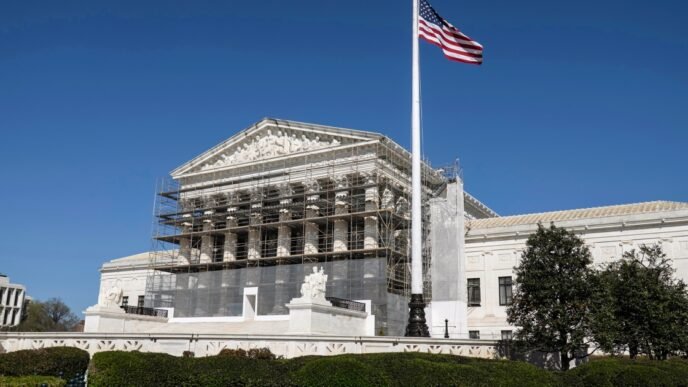WASHINGTON — The Supreme Court on Thursday revived a woman’s claim that she was discriminated against at work because she is straight.
The unanimous ruling could make it easier in some parts of the country for people belonging to majority groups to bring such “reverse discrimination” claims. It overturns precedent in some lower courts that says someone from a “majority group” has to meet a higher bar than someone from a minority group for a case to move forward.
Marlean Ames sued the Ohio Department of Youth Services under Title VII of the Civil Rights Act, which prohibits sex discrimination in the workplace, after a lesbian woman obtained a promotion she had applied for. She was later demoted, and her old position was taken by a gay man.
Writing for the court, Justice Ketanji Brown Jackson said the test is “not consistent with Title VII’s text or our case law construing the statute.”
Ames had worked at the department since 2004, but the dispute arose after she began reporting to a lesbian woman in 2017. She was denied the promotion she sought two years later and demoted soon after that.
The state says Ames was demoted because new leadership in the agency wanted to restructure its operations to focus on sexual violence in the juvenile corrections system. Ames had led a program aimed at combating rape in prison but was seen as difficult to work with, according to the state’s court papers.
Officials involved in making those decisions are straight, the state has pointed out.
Lower courts, including the Cincinnati-based 6th U.S. Circuit Court of Appeals, ruled for the state agency. Ames then turned to the Supreme Court.












